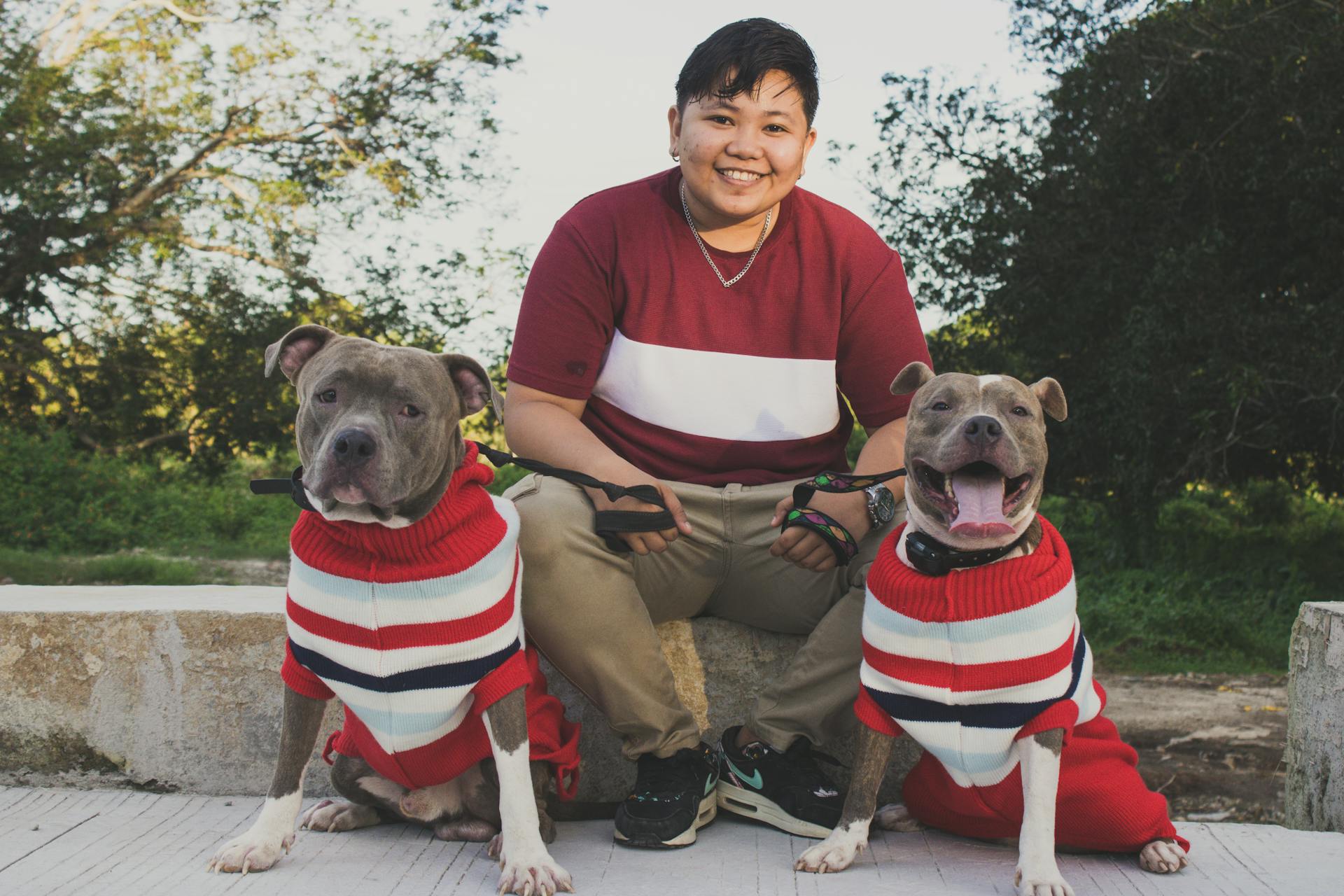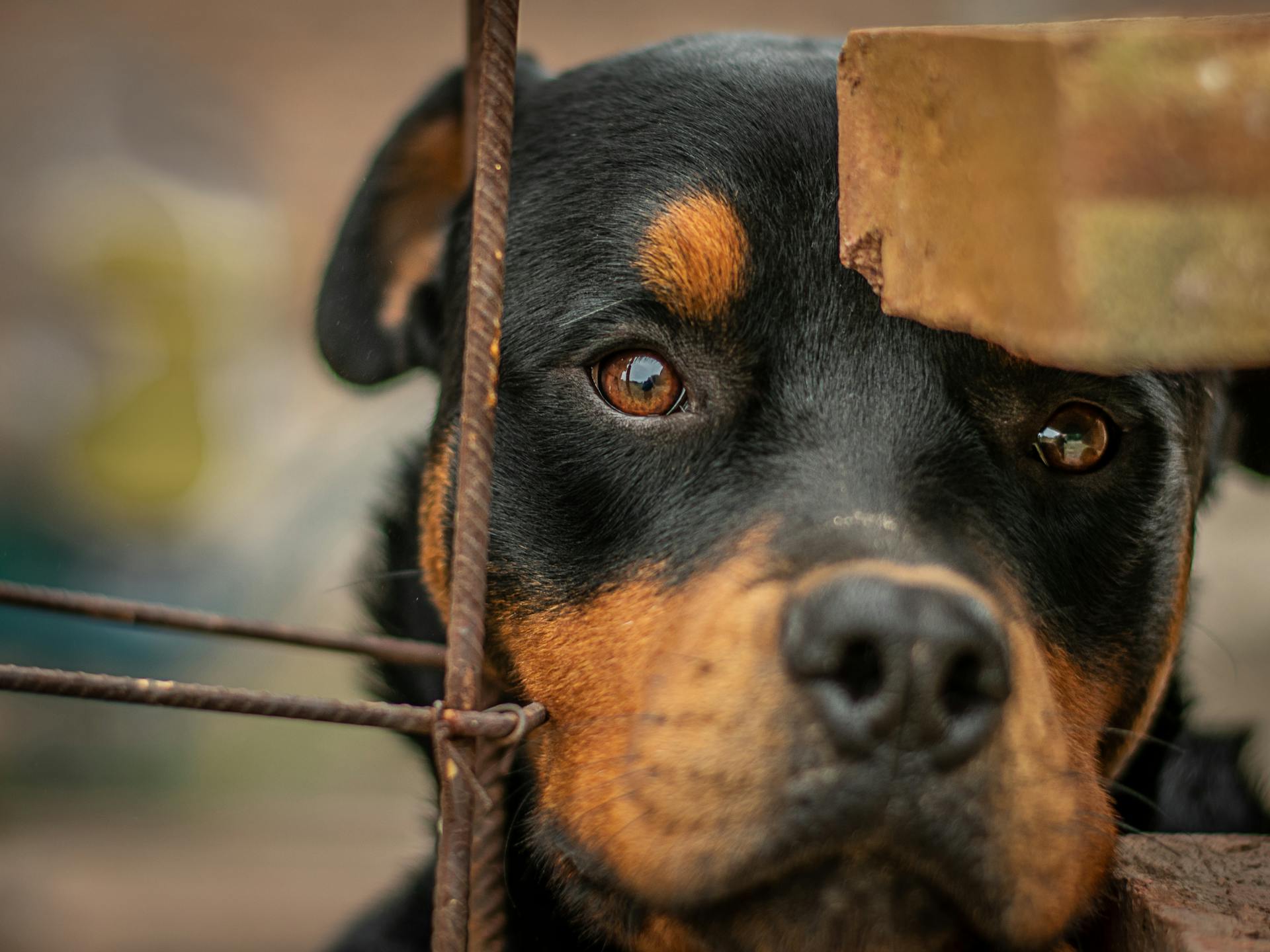
Pit bulls are often misunderstood, but are they banned in the US? The answer is a bit more complicated than a simple yes or no.
Some cities and states have indeed implemented breed-specific legislation (BSL) that restricts or prohibits the ownership of pit bulls. For example, in some places like Denver, Colorado, and Miami, Florida, pit bulls are banned outright.
However, many cities and states have also repealed or modified their BSL laws in recent years. In fact, over 40 US cities have repealed their pit bull bans since 2008. This shift in policy is largely due to a growing recognition of the importance of evidence-based legislation.
See what others are reading: American Bully Ban Us
What Is BSL?
Breed-specific legislation, or BSL, is a type of law that targets specific breeds of dogs based on their appearance.
BSL is often implemented to regulate a small group of breeds that have a genetic propensity to attack and inflict severe injuries.
According to DogsBite.org, enacting BSL can help prevent dog attacks by regulating these breeds, which can result in severe injuries or even fatalities.
Curious to learn more? Check out: Breeds of Pit Bulls Chart
Some breeds that are commonly targeted by BSL include pit bulls, Rottweilers, German Shepherds, Mastiffs, and American Bulldogs.
These breeds are responsible for a significant number of dog bites and fatalities, with pit bulls being the leading cause of dog-related deaths.
In Prince George's County, Maryland, BSL was enacted in 1996, and within 14 years, overall dog bites decreased by 43% and pit bull bites were down 35%.
BSL laws can vary in their requirements, but they often include restrictions such as muzzling the dog in public, spaying or neutering the dog, and keeping the dog on a leash of specific length or material.
Some BSL laws also require owners of targeted breeds to purchase liability insurance of a certain amount or place signs on the outside of their residence where the dog lives.
A list of some common restrictions imposed by BSL laws is as follows:
- Muzzle the dog in public
- Spay or neuter the dog
- Keep the dog on a leash of specific length or material
- Purchase liability insurance of a certain amount
- Place signs on the outside of the residence where the dog lives
While some people argue that BSL is effective in reducing dog bites and fatalities, others argue that it is not the most effective way to address the issue, as it can lead to the removal of innocent dogs from their homes.
In Maryland, for example, breed-specific discrimination was once common, with some insurance companies refusing to cover homeowners with certain breeds of dogs.
However, in 2013, the Maryland Legislature passed a law forcing insurance companies to disclose any breed-specific discrimination in their policies.
Today, there are no banned dog breeds in Maryland, but some counties have restrictions on the type of dog you can have.
For example, Prince George's County has an ordinance limiting pit bull ownership, but this law is currently being challenged in federal court.
On a similar theme: What Type of Dog Is a Pitbull
BSL Laws in the US
BSL, or Breed-Specific Legislation, is a type of law that bans or restricts certain dog breeds based on their appearance. BSL is not a federal law, but rather a patchwork of state and local laws.
As of 2016, approximately 20 states in the US have enacted anti-BSL laws, which means they prohibit local governments from implementing breed-specific regulations. This shift towards anti-BSL legislation is a significant trend, as it prioritizes preventative actions and education on responsible dog ownership over breed-specific bans.
Suggestion: Bully Breed Ban Us
Some states, like Arizona, have made it clear that BSL is not an effective way to address dog bites and community safety. In fact, Arizona Governor Doug Ducey made Arizona the 20th state to enact anti-BSL laws in 2016.
Not all states have anti-BSL laws, and some counties within states have their own breed-specific regulations. For example, Prince George's County in Maryland has an ordinance limiting pit bull ownership. However, this law is being challenged in federal court, highlighting the controversy surrounding BSL.
Here's a breakdown of the number of deaths due to dog bites in the US, as reported by DogsBite.org:
This data shows that pit bulls were responsible for the majority of dog bite-related deaths in the US between 2005 and 2019. However, it's essential to note that BSL has not been proven to be an effective solution to this problem.
In fact, prior to the enactment of BSL in Prince George's County, Maryland, there were 853 dog bites reported in 1996, including 108 from pit bulls. 14 years into the ban, overall dog bites had decreased by 43%, and pit bull bites were down by 35%.
Recommended read: Female Pitbull Terrier
States with BSL Laws
Some states in the US have laws that restrict or ban certain breeds of dogs, including pit bulls.
Maryland, for example, has a law that restricts the ownership of pit bulls in certain cities and counties.
In Maryland, cities and counties with pit bull restrictions include Baltimore City, Montgomery County, and Prince George's County.
Check this out: Are Pit Bulls Illegal in Maryland
What States Don't Allow?
Most states in the USA have Breed Specific Legislation on the books, which often targets pit bulls, Rottweilers, and Dobermans.
Iowa is the worst state with over 90 municipalities that have BSL, making it a challenging place for pit bull owners.
The states that don't have any BSL being enforced or prohibit BSL are Alaska, Arizona, Connecticut, Hawaii, Maine, Massachusetts, Minnesota, Nevada, New Hampshire, New Jersey, New York, Oklahoma, Pennsylvania, Rhode Island, South Dakota, Utah, and Virginia.
These states have either repealed their BSL laws or prohibited local governments from making their own BSL, providing a safer haven for pit bull owners.
Curious to learn more? Check out: What State Are Pit Bulls Illegal in
Even if a state doesn't have a BSL law, some cities within that state may still have their own breed-specific bans, so it's essential to check the local laws before moving.
Kentucky, for example, has just over 30 municipalities with BSL on the books, making it a state where pit bull owners need to be cautious.
The 10 states where pit bull owners are most likely to face challenges are Iowa, Kansas, Ohio, Missouri, Wisconsin, Mississippi, Arkansas, Michigan, Louisiana, and Kentucky.
Dogs Banned in Maryland
Dogs banned in Maryland aren't a straightforward issue. There are no dogs that are explicitly illegal under Maryland law, so technically, there are no banned dog breeds. However, some counties have placed restrictions on the type of dog you can have.
In Prince George's County, for instance, there's an ordinance limiting pit bull ownership. This ruling was affirmed a few years ago, but it's now being challenged in federal court.
Worth a look: Pitbull Dog Laws
The lawsuit against the ordinance points out that the process of determining whether a dog is a "pit bull" is based on an unscientific system. This has raised questions about the effectiveness of breed-specific laws.
Here are some key statistics on dog bites in Prince George's County:
These numbers were collected by DogsBite.org and show the devastating impact of dog attacks. By enacting breed-specific laws, communities can work towards preventing such attacks from happening in the first place.
Impact of BSL
BSL's impact on communities is a topic of debate. Some argue it makes communities safer, but data collected by DogsBite.org shows that enacting BSL doesn't necessarily prevent dog attacks.
According to DogsBite.org, enacting BSL can actually be ineffective because it treats the result (a dog bite) instead of the cause (bad animal owners). For example, Miami-Dade County, Florida, has had a pit bull ban since the 1980s, but the county still euthanizes about 800 illegally owned pit bulls per year.
BSL can even lead to an increase in dog bites. For instance, following a pit bull ban in Council Bluff, Iowa, Boxer and Labrador Retriever bites increased, as did overall dog bites.
Curious to learn more? Check out: American Bull Dog Pit
BSL Makes Communities Safer
BSL makes communities safer by regulating breeds that have a genetic propensity to attack and inflict severe injuries.
Data collected by DogsBite.org shows that between 2005 and 2019, at least 521 deaths were due to dog bites, with 346 attributed to pit bulls.
Pit bull attacks often result in severe injury, and in some cases, the first bite can be fatal.
Prior to BSL enactment in Prince George's County, Maryland, there were 853 dog bites reported in 1996, with 108 from pit bulls.
Fourteen years into the ban, overall dog bites had decreased by 43%, and pit bull bites were down by 35%.
BSL Does Not Increase Community Safety
Miami-Dade County, Florida, has had a pit bull ban since the 1980s, but the county still euthanizes about 800 illegally owned pit bulls per year.
BSL is ineffective because it treats the result (a dog bite) instead of the cause (bad animal owners). People who are breeding or training dogs for illegal fighting or to protect illegal activities will simply turn to another dog breed if pit bulls are banned.
Following a pit bull ban in Council Bluff, Iowa, Boxer and Labrador Retriever bites increased, as did overall dog bites.
In Winnipeg, Canada, Rottweiler bites immediately increased after a pit bull ban was enacted, but all dog bites decreased when the city changed the law to be breed-neutral.
Explore further: Are Pit Bulls Illegal in Miami
Frequently Asked Questions
What is the new pitbull law?
Florida's new law, effective Oct. 1, prohibits public housing authorities from banning dogs based on breed, weight, or size, effectively ending breed-specific restrictions. This law overturns local breed bans, including those targeting pit bulls, which were previously restricted in the state.
Are pit bulls illegal in Texas?
No, pit bulls are not entirely illegal in Texas, but there are state-level restrictions on breed-specific laws. However, cities and counties may still have their own ordinances regulating pit bulls.
Sources
- https://www.procon.org/headlines/pit-bull-bans-top-2-pros-and-cons/
- https://love-a-bull.org/resources/breed-specific-legislation/
- https://petset.com/what-states-dont-allow-pit-bulls/
- https://www.marylandinjurylawcenter.com/dog-breed-insurance-maryland.html
- https://www.animallaw.info/article/overview-breed-specific-legislation-bsl-ordinances
Featured Images: pexels.com


